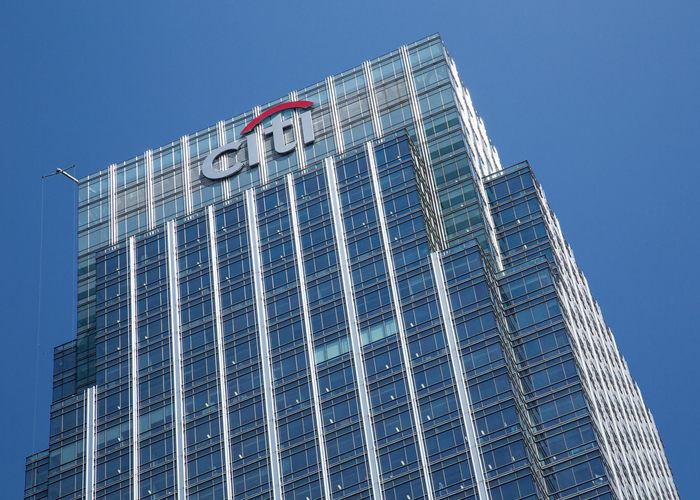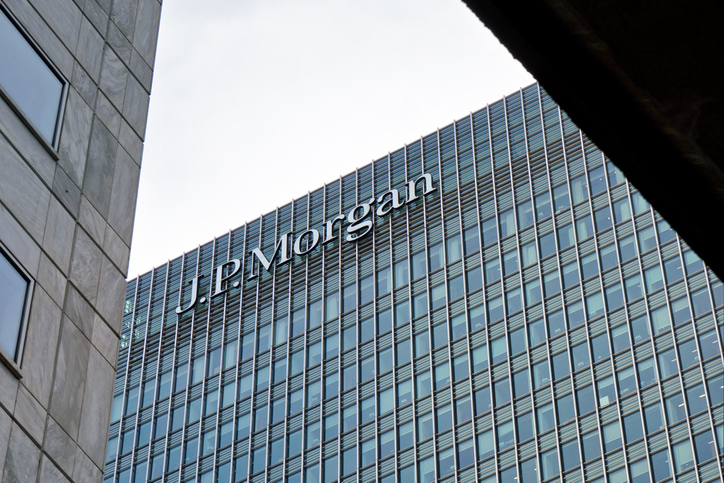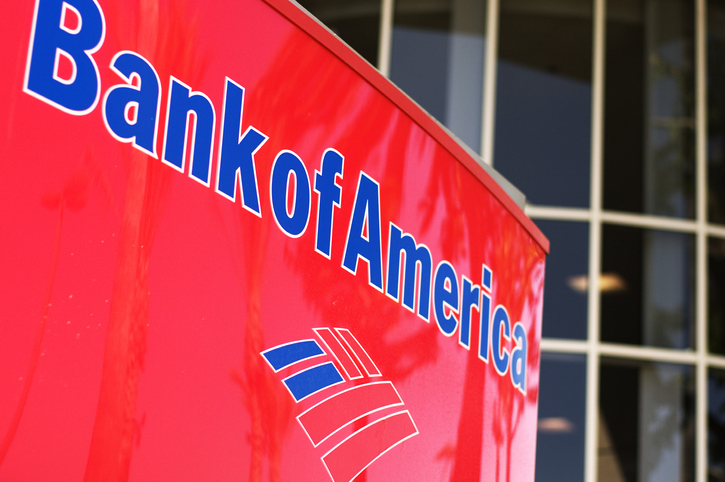Six US bank stocks: buy, hold, or sell?
After latest quarterly results, our stock picker shares his analysis and opinion on the big US banks.
16th July 2021 11:17
by Edmond Jackson from interactive investor
After latest quarterly results, our stock picker shares his analysis and opinion on the big American banks.

Banks are worth monitoring in any stock market as a reflection of the underlying economy and a leading indicator of sentiment.
In the US, they have strongly outperformed the S&P 500 index’s 16% rise during the first half of 2021, although second-quarter results reporting this last week has been mixed.
Pure investment banks such as Goldman Sachs Group Inc (NYSE:GS) have enjoyed record revenue and profit amid busy capital raising on the back of high stock prices, and record takeovers.
Equity trading has boomed, albeit off-setting declines from fixed-interest trading.
- Invest with ii: Top US Stocks | US Earnings Season | Super 60 Investment Ideas
A mixed picture from the big “universal” banks
Those such as Bank of America Corp (NYSE:BAC), JPMorgan Chase & Co (NYSE:JPM)and Citigroup Inc (NYSE:C) combine investment banking with commercial and often personal banking too.
Demand for loans appears mixed, and banks also face a headwind of very low interest rates which compromises their business model.
Typically, like-for-like second-quarter revenues have turned out softer, however profits have massively beaten expectations because banks are “releasing reserves” – i.e. cash set aside a year ago to cope with an anticipated tide of loan defaults, which barely materialised due to huge fiscal/monetary stimulus.
Exceptional stimulus could mean transient prosperity
My overall interpretation is a glossy façade on some weak timbers below, even if it’s good to hear positive remarks on loan demand.
Admittedly, most valuations do not look extended in historic price/earnings (PE) terms, although yields are immaterial as a prop should stories change adversely.
- No trading fees on US shares for new and existing customers from Monday 12 to Friday 16 July 2021. Find out more here
- AMC Entertainment: what could happen to this volatile Reddit stock
- Top 20 most-bought US stocks so far this year
- Are US stocks fast approaching peak earnings?
Charts show US bank stocks in a consolidation phase, which partly reflects renewed interest in technology and other growth stocks, hence an aspect of switching.
I suspect the extent of monetary and fiscal support from the US Federal Reserve and government has been axiomatic in all these banks avoiding big losses to instead report bumper profits.
If 5% US inflation does not abate later this year, stock market expectations will shift to tighter monetary policy – whatever Fed officials say in the meantime. Compared with UK-listed companies I have examined recently, US bank bosses are not forthcoming with firm guidance on 2021 profit as a whole.
Mind a latest sceptical study on “beating earnings estimates”
Coincidentally, with banks outstripping expectations this week, Bank of America Global Research released an interesting study, claiming the S&P 500’s rise this year has been wholly driven by raised earnings estimates.
Yet if history is any guide to future performance, 60% of down quarters in the US market have coincided with earnings beats.
In 2000, and despite beats for 10 successive quarters, stocks actually declined for four consecutive quarters.
That would also tie in with a longstanding adage about how stocks no longer responding to earnings beats implies a tired bull market.

Goldman and JP Morgan kick off with strong numbers
Helped by an investment banking bias, both banks beat revenue and earnings estimates, yet their stocks eased 1% or so. US merger and acquisition activity surged in April and especially May, providing a profits bonanza.
Goldman Sachs declared net profit of $5.5 billion (£4 billion) on $15.4 billion revenue – its second highest-ever numbers after a record first quarter – versus just $373 million profit like-for-like.
While return on equity eased below 24% after the first quarter, it was over 27% for the first-half-year.
I feel more positive about Goldman than other banks, given it enjoys top position globally for corporate finance and has stated its backlog had increased “significantly” since end-2020 – to a record level.
Barring losses on the trading side, this could easily keep Goldman’s numbers elevated for the rest of this year, in which case a trailing PE below 7x and 2% prospective yield mitigates risk of a slump in equity markets. At $373: Hold.
- Hot sector: should investors put down roots in plant-based foods?
- Stock market recovery 2021: half-term report
- Take control of your retirement planning with our award-winning, low-cost Personal Pension
JP Morgan Chase is on 12x earnings and likewise a 2% yield – albeit earnings per share (EPS) having enjoyed a $2.3 billion boost from reserves releases (linked to credit card and mortgage reserves).
The CEO says an improving US economic outlook drove this decision with consumer and wholesale balance sheets “exceptionally strong”.
Investment bank revenues were mixed, with trading revenue down 30%, offset by $3.4 million corporate finance revenue boosted by takeovers and their financing.
The stock eased 3% to about $156 having risen 24% this year. My instinct is to lock in gains, although the CEO is being positive on loans demand. Overall: Hold.
Bank of America underperforms the pack
This was the sole bank falling short of expectations, yet its shares eased only 3% to $39 – on a trailing PE of around 17x and prospective yield just over 2%.
Revenue slipped 4% to $21.6 billion chiefly due to a 6% fall in net interest income amid lower interest rates. Also, lower fixed income trading revenue of $2 billion was well below consensus, yet partly offset by better revenue from equities. EPS still trebled to over $1 after a $1.6 billion reserves release.
More positively, the CEO said its loan book grew in the second quarter for the first time since early 2020; but you could say that is priced in anyway given the stock has soared over 30% this year, nearly twice that of the S&P 500 index. Sell.

Citigroup and Wells Fargo out-perform
Citigroup beat revenue expectations, though was down 12% to $17.5 billion due to lower fixed income trading also credit cards loans, offset by equities trading and corporate finance.
A $1.1 billion reserves release meant EPS nearly quintupled however to $2.85 versus expectations for near $2.
The shares eased only very slightly to $68 having hit $80 in June, on an historic price earnings of 9x and prospective yield of 2%. Hold,albeit on a weak basis.
Wells Fargo & Co (NYSE:WFC) has seen revenue jump 10% to $20.3 billion, with EPS quadrupled to $1.4 versus near $1 expected – boosted by a $1.6 billion reserves release. Yet the CEO cautions: “demand for loans remains muted despite the economic recovery”.
- ii view: JP Morgan enjoys profits boom, but shares drop
- AMC Entertainment: what could happen to this volatile Reddit stock
Wells’ stock rose 4% to $45 despite a very high PE – 31x historic – and a scant sub-1% yield, which combination has deterred me from advocating it.
Currently, it is in a sideways consolidation that remains below a $50 range during 2015 to 2018, but I would avoid it. Sell.
Morgan Stanley outperforms, similar to Goldman
Morgan Stanley (NYSE:MS) stock is flat at near $93 despite yesterday beating revenue estimates by 17% at $2.8 billion, with investment banking comprising 87% of this.
There is a similar pattern of equities compensating for a shortfall in fixed income trading, while corporate finance rakes in cash.
Morgan is also diversified in wealth/investment management – bolstered by acquisitions - which should help smooth earnings. Its asset management side is one of the largest globally, so if asset values remain supported the bank should do well and its stock is not expensive on a PE of 12 and 3% yield. Hold.
Federal Reserve’s response is the key issue going forward
Bank stocks are liable to pivot on whether US inflation proves transitory or ingrained later this year – with the risk of upsetting monetary policy expectations.
Rising interest rates would start to heal commercial banks’ operating model but strike a blow to equities – hence investment banking revenues.
Also, financial stocks do tend to be sensitive to overall changes in market sentiment. The risk/reward profile on US bank stocks therefore looks unfavourable.
Edmond Jackson is a freelance contributor and not a direct employee of interactive investor.
These articles are provided for information purposes only. Occasionally, an opinion about whether to buy or sell a specific investment may be provided by third parties. The content is not intended to be a personal recommendation to buy or sell any financial instrument or product, or to adopt any investment strategy as it is not provided based on an assessment of your investing knowledge and experience, your financial situation or your investment objectives. The value of your investments, and the income derived from them, may go down as well as up. You may not get back all the money that you invest. The investments referred to in this article may not be suitable for all investors, and if in doubt, an investor should seek advice from a qualified investment adviser.
Full performance can be found on the company or index summary page on the interactive investor website. Simply click on the company's or index name highlighted in the article.
Disclosure
We use a combination of fundamental and technical analysis in forming our view as to the valuation and prospects of an investment. Where relevant we have set out those particular matters we think are important in the above article, but further detail can be found here.
Please note that our article on this investment should not be considered to be a regular publication.
Details of all recommendations issued by ii during the previous 12-month period can be found here.
ii adheres to a strict code of conduct. Contributors may hold shares or have other interests in companies included in these portfolios, which could create a conflict of interests. Contributors intending to write about any financial instruments in which they have an interest are required to disclose such interest to ii and in the article itself. ii will at all times consider whether such interest impairs the objectivity of the recommendation.
In addition, individuals involved in the production of investment articles are subject to a personal account dealing restriction, which prevents them from placing a transaction in the specified instrument(s) for a period before and for five working days after such publication. This is to avoid personal interests conflicting with the interests of the recipients of those investment articles.